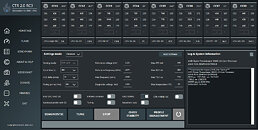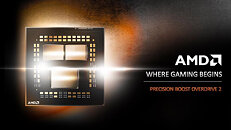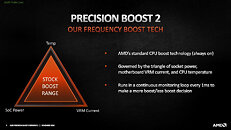
MSI Announces New Features and Support for AMD Ryzen 9000 Series Processors
MSI is excited to announce the launch of the latest AMD Ryzen 9000 Series processors, set to debut on the AM5 platform. Powered by advanced 4 nm CPU process technology, the Ryzen 9000 Series promises to revolutionize the computing landscape with unmatched performance, efficiency, and versatility for gamers and content creators. At launch, August 8th, AMD Ryzen 7 9700X, and Ryzen 5 9600X are available while the Ryzen 9 9950X and 9900X will launch on August 15th. These processors will feature up to 16 cores and 32 threads, with a theoretical maximum boost clock speed of 5.7 GHz, 64 MB of L3 cache, and a maximum TDP of 170 W.
AMD Ryzen 9000 Series will also support PCIe 5.0 for the GPU and M.2 while enhancing DDR5 memory speed. Notably, the AMD Ryzen 7 9700X offers approximately 12% better overall performance than the first-gen AMD 3D V-cache CPU. All these processors are compatible with the AM5 socket, and existing AMD 600 Series motherboards and Ryzen 9000 Series processors can seamlessly integrate by updating to the latest BIOS, available on MSI's product support page.
AMD Ryzen 9000 Series will also support PCIe 5.0 for the GPU and M.2 while enhancing DDR5 memory speed. Notably, the AMD Ryzen 7 9700X offers approximately 12% better overall performance than the first-gen AMD 3D V-cache CPU. All these processors are compatible with the AM5 socket, and existing AMD 600 Series motherboards and Ryzen 9000 Series processors can seamlessly integrate by updating to the latest BIOS, available on MSI's product support page.

















